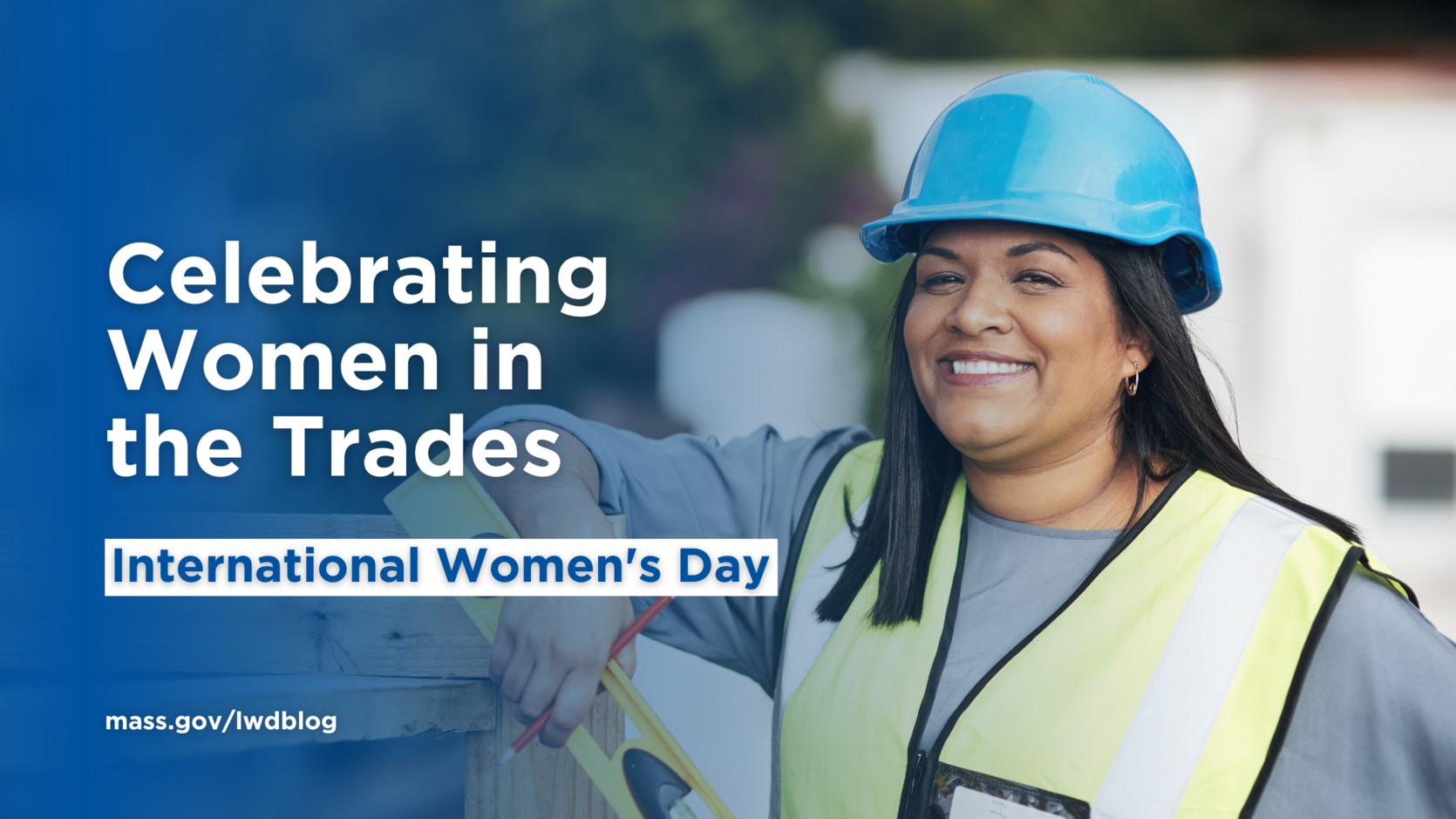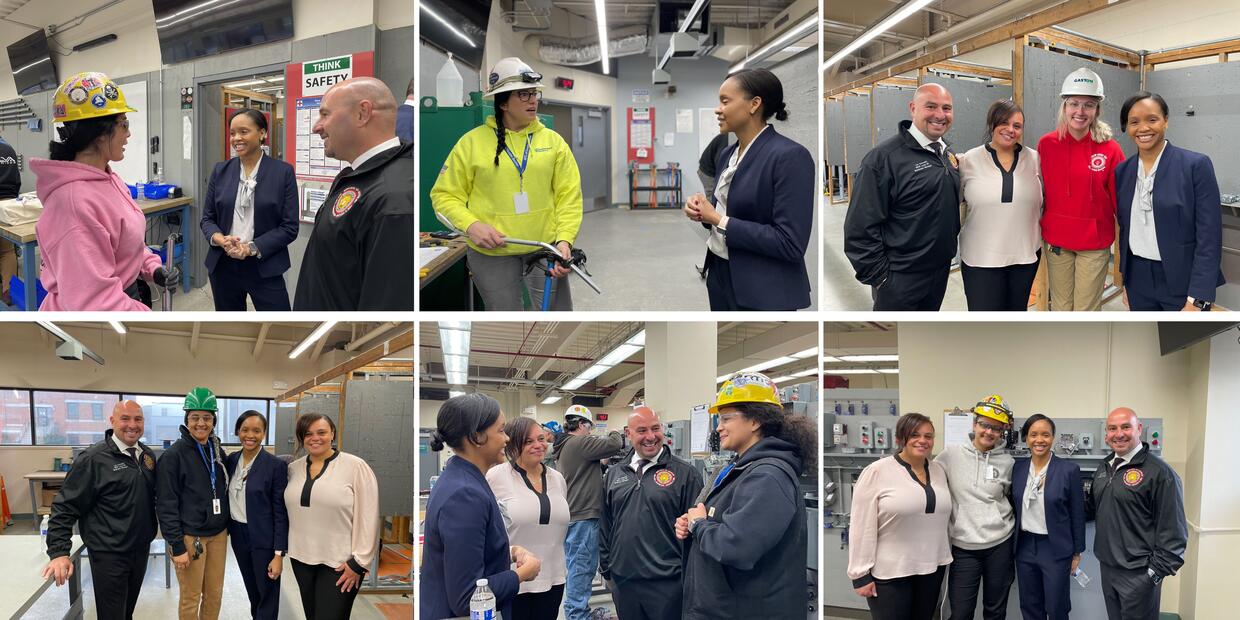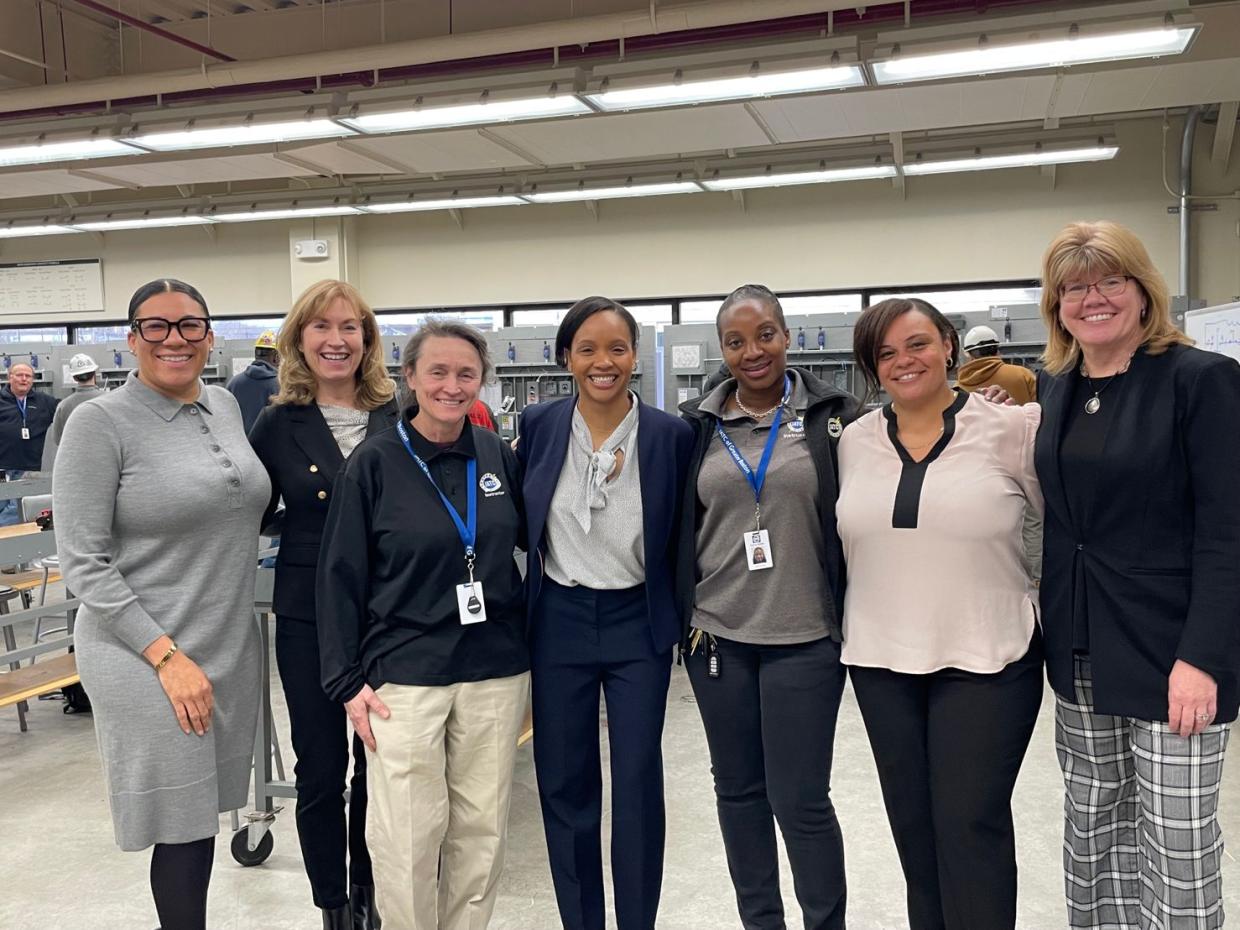- Executive Office of Labor and Workforce Development

Creating pathways to meaningful careers for untapped, diverse talent in Massachusetts is critical for building a robust workforce across the Commonwealth. As we celebrate International Women’s Day on March 8, the Executive Office of Labor and Workforce Development (EOLWD) is proud to Embrace Equity, this year's national theme, by collaborating with employers, training partners, and community-focused groups on regional strategies to train a more diverse workforce for careers in high-demand sectors.
In recognition of International Women’s Day and National Women in Construction Week (March 5-11, 2023), we celebrate women in our workforce but also recognize we must work collectively to achieve more progress. Women are valuable members of the construction trades in such roles as business owners and executives, managers and office administrators, attorneys, architects, engineers, accountants, estimators, welders, electricians, carpenters, plumbers, and more.
During a visit to the Greater Boston Joint Apprentice Training Center (JATC)/International Brotherhood of Electrical Workers (IBEW) Local 103 in Dorchester, Labor and Workforce Development Secretary Lauren Jones had the opportunity to meet women in construction roles. Each woman shared a unique story but all agreed that Registered Apprenticeship was a pathway to their success.
Angela Noenickx (to the left of Secretary Jones in the picture below) and Nicki Gaskin (to the right of Secretary Jones in the picture below) are full-time instructors at JATC. Combined, they have over 50 years of electrical experience. Angela and Nicki shared why they became instructors:
“The students by far. We’re all here for the same reason. Everyone cares about the students, cares about their success, and guides them through.” - Angela
“I wanted to give back and show younger people, minorities, and women, that there’s opportunity to grow here at the Union.” - Niki
We also had the chance to meet Renee Dozier (standing second to the right in the picture above), a Business Agent at IBEW Local 103. As an apprentice, she feels empowered by the local’s brotherhood and sisterhood. Prior to joining the Local, Renee was a Patrol Officer, but realized it was not what she wanted to do. “My mother showed me there was nothing I couldn't do”, said Renee. “She encouraged me to apply, and here I am”.
IBEW Local 103 trains approximately 1,500 registered apprentices annually. Their most recent class of apprentices includes 31 percent people of color and 15 percent women. IBEW offers equal pay to all apprentices and believes in the equity of brotherhood and sisterhood.
Currently, there are more than 1,000 registered apprenticeships programs and over 11,000 active apprentices across Massachusetts, 90 percent of which are in the building trades industry. The construction industry employed an estimated 22,930 female workers and 191,116 male workers in 2021. This data is from the American Community Survey (ACS) 2021 1-year estimates.
Governor Healey and Lt. Governor Driscoll understand the value of Registered Apprenticeship, as reflected the Administration’s first budget proposal released last week. The FY2024 Budget Recommendation focuses on affordability, equity, and competitiveness, including a 400 percent increase to $5 million for the Registered Apprenticeship Program line item, that will fund 684 apprenticeships in FY24.
For information on Registered Apprenticeship, visit mass.gov/DAS.


